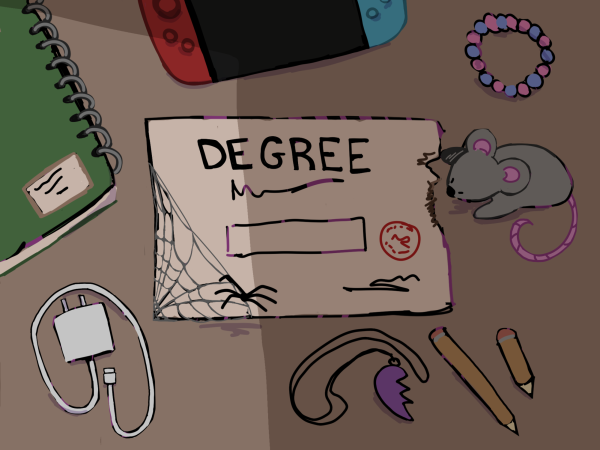Right minimum wage is no minimum wage
The minimum wage has been a huge topic of discussion for decades. Arguments have gone back and forth as to why the minimum wage should be raised, lowered, or even exist at all.
The controversy has also been a major talking point for many presidential hopefuls. Both of the leading Democrats, Hillary Clinton and Bernie Sanders, have been huge supporters of raising the minimun wage.
On the other hand, Republicans Donald Trump, Ted Cruz, Marco Rubio, and many of the other candidates have fiercely spoken against an increase. Both sides are wrong. The minimum wage does not need to be changed. It needs to be abolished.To truly understand why the minimum wage should be eliminated, we must first define what a wage is. Simply put, a wage is the price of labor. A fair price to pay for labor depends on its value. How does one determine the value of labor? With one of the simple tenets of economics: supply and demand.
Nothing has “inherent value.” This is an idea put forth by many leftists, but is disproven through a simple thought experiment.
If one were offered a bottle of water at the time of reading this article, how much would that water be worth? Perhaps $1.
If that same person was offered a bottle of water after a 15-mile run in the desert, how much would that water be worth? It is the same bottle of water, but as the desires of the consumer increases, so does its value.
The same logic can be applied to wages, or the value of labor. As desires for a particular type of labor changes, so does its value. The government’s decision that all labor is worth at least $15 an hour does not make it so. And employers will take action to compensate.
Minimum wage laws can only require employers to pay more per hour, not increase overall expenditures on labor. If an arbitrary limit is set on the price of labor (minimum wage), then businesses will either raise prices to cover for losses or simply lay off workers.
The furthering of government interference with private contracts prevents many people from even getting jobs.
For example, an inexperienced teenager may have skills worth only $7.50 an hour.
He is willing and able to work for that much and an employer is willing and able to pay him that amount. But under minimum wage laws, he would not be hired, as his labor is not worth the minimum wage set by the government.
Not only does this teenager miss out on income, but valuable work experience as well. Every job teaches skills, such as punctuality and cooperation with co-workers, that will help in future careers.
Essentially, the government cannot set the value of an employee. Only an employer is qualified to evaluate the skill set of an employee, and to offer a wage fitting of that skill set.
An argument against eliminating the minimum wage is that employers can offer merely pennies for an employee.
But if an employer did offer less than the value of an employee, another employer will offer more. When the employer that offered merely pennies has no employees left, he will thus be incentivized to offer more.
Abolishing the minimum wage not only creates competition among future employees, but also for the employer.
Employees must gather skills in order to earn a higher salary, and employers must provide competitive salaries such that people will actually find it reasonable to work for them.
The objective of a minimum wage is to support a family, as many minimum wage proponents would say. On the contrary, it really isn’t.
Minimum wage positions were intended for those who are new to the job market. These jobs were designed to give an employee knowledge of how to operate in a workplace, so they will have learned a broad skill set and be able to demand a higher salary for their next job.
The most vital question, however, is how an increase or decrease in the minimum wage will impact our economy.
The answer lies in the past.
Numerous studies over the years have proven that minimum wage generally has an extremely negative impact on the economy.
One example is the American Samoa, which is a small U.S. territory about 3,600 miles off the coast of Australia. Congress, over time, hiked the minimum wage in 2007 to an equivalent of about $20 per hour in the U.S.
After only three of the proposed 10 gradual increases, the unemployment rate leaped from just five to 36 percent.
A Sunkist tuna cannery in the American Samoa started laying off workers and cutting hours, while its competitor on the island, called “Chicken on the Sea,” closed completely.
The same fate that befell the island’s only two tuna canneries could very well occur with businesses in the U.S. if the minimum wage was to be escalated. If the minimum wage had never been raised, or rather, if it had been elimninated, the canneries might have proven to be successful.
If government intervention in economics only has detrimental effects on the free market, then the answer lies in its abolition.

